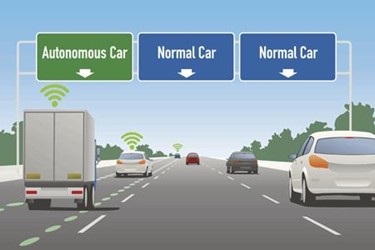Ford's Argo AI Buys LiDAR Startup Princeton Lightwave

By Jof Enriquez,
Follow me on Twitter @jofenriq

Ford-controlled Argo AI has acquired New Jersey-based Princeton Lightwave, a developer of LiDAR (light detection and ranging) cameras and sensors for autonomous driving vehicles, for an undisclosed amount.
Princeton Lightwave claims to be the only company to produce Geiger-mode detectors that operate at near-infrared/shortwave-infrared wavelengths. The company says its LiDAR cameras can capture images at accuracies and speeds that are orders of magnitude beyond that of other near-infrared imaging technologies. Their latest product is called the GeigerCruizer, which provides eye-safe 3D visualization beyond 300 meters for self-driving cars.
"The technology that underpins their lineup of LiDAR sensors — which already serve the commercial mapping and defense industries — will help us extend the range and resolution needed to achieve self-driving capability in challenging urban environments," wrote Bryan Salesky, CEO, Argo AI.
In February, Argo took a $1-billion investment from Ford to advance the automaker's virtual driver system for its SAE level 4 self-driving vehicles, from hardware and software development, to eventual commercialization sometime in 2021. Ford said they will work with Argo engineers in increasing the range, resolution, and field of view of LiDAR, including its ability to guide autonomous cars during poor weather and dynamic driving conditions.
Argo’s announcement comes a few days after Delphi Automotive bought MIT-spinoff nuTonomy, which is developing software for autonomous vehicles, reported the Pittsburgh Post-Gazette.
It is also the second deal made by a major American automaker to beef up in-house autonomous vehicle R&D with LiDAR technology, as it closely followed General Motors’ early October purchase of sensor tech firm Strobe Inc.
Julie Schoenfeld, CEO of Strobe, says major automakers are betting on LiDAR to achieve higher levels of autonomous driving.
"Everybody is kicking the tires on every Lidar company," she told Business Insider. "Lidar is absolutely required — and required right now."
Google is looking to integrate its own LiDAR solutions into its Waymo self-driving cars.
Bucking the trend for LiDAR adoption in the automotive industry is Tesla. The company is using its Autopilot driver assist system, which relies on forward-looking cameras, long-range radar, and ultrasonic sensors to feed data to a powerful onboard computer. Tesla founder Elon Musk says that Autopilot is unique because it has the ability to learn from input from all vehicles in the Tesla fleet, which will include fully autonomous cars in three years.
